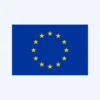exploring challenges: multistate torts in european private international law
The increasingly interconnected world of the EU provides fertile ground for legal disputes spanning multiple jurisdictions. Multistate torts, such as cross-border defamation, product liability, or environmental accidents, challenge the very frameworks of European Private International Law. Balancing the interests of different legal systems, affected parties, and public policies is no simple task when cases involve multiple states with competing laws and priorities.
No affiliates available for this country.
One of the key challenges lies in the fragmentation of applicable laws. For instance, what happens when a car accident takes place between drivers of two different EU member states, in a third country? Whose law governs? Complexities also arise in cases involving modern torts such as data breaches impacting individuals across borders, making coordination essential.
Through focused discussions and interdisciplinary sessions, participants gain insight into contemporary challenges and the tools available under instruments like Rome II Regulation. Uniting diverse EU perspectives has never been more necessary.
When addressing multistate torts within European Private International Law, a strong understanding of the legal frameworks provided by EU legislation and Hague conventions becomes indispensable. The Rome II Regulation, for example, serves as the cornerstone for determining the applicable law in cross-border torts within the EU. Its rules simplify cases by providing predictable solutions to issues like traffic accidents or environmental damage that span multiple jurisdictions. However, Rome II is not without its limits—it does not cover areas such as defamation, leaving notable gaps in its protective scope.
On the global stage, the Hague Conventions, such as the 2019 HCCH Convention on the Recognition and Enforcement of Foreign Judgments, complement EU measures by enhancing cooperation between EU member states and third countries. This interplay is crucial in a world where digital torts, like cyberattacks or data breaches, frequently transcend borders. The alignment of these instruments is vital for ensuring legal certainty and justice for all parties involved in multistate disputes.
theory meets practice: workshops and case studies
Workshops and case studies at the EAPIL Winter School offer an unparalleled opportunity to bridge the gap between theoretical frameworks and their practical application. Designed to simulate real-life scenarios, these sessions challenge participants to navigate complex multistate tort cases while considering the intricate legal frameworks in force across the EU.
Attendees will work in collaborative groups, dissecting disputes such as cross-border environmental damages or international product liability claims. These exercises enable participants to grapple with jurisdictional complications, apply statutory instruments like the Rome II Regulation, and balance competing legal principles. For instance, how should damages be calculated when an industrial accident in one EU country affects residents in several neighboring states?
Case studies are enriched by expert-led workshops, such as Silvia Marino’s session on exchanging best national practices. Here, attendees compare different member states’ approaches to addressing multistate tort claims, gaining invaluable insights into harmonizing diverse legal interpretations. With interactive participation at its heart, these sessions are the perfect training ground for tackling tomorrow’s legal challenges in multistate torts.
expert perspectives: teaching staff and keynote sessions
The teaching staff and keynote sessions at the EAPIL Winter School bring together an extraordinary group of legal experts, scholars, and practitioners from across Europe. With decades of combined experience, these specialists will guide participants through the intricacies of multistate torts, providing a well-rounded perspective on both theoretical and practical dimensions. From judicial authorities like former European Court of Human Rights Judge Paivi Hirvelä to renowned academics such as Geert Van Calster, the program boasts a stellar lineup.
Keynote sessions are designed to ignite meaningful discussions and provide deep insights into emerging topics, such as jurisdictional challenges in defamation claims or the complex handling of crypto-related torts. For example, Thomas Kadner Graziano’s session promises to shed light on the coordination of multiple jurisdictions under the Brussels system. Other experts, like Veronica Ruiz Abou-Nigm, will delve into procedural issues like lis alibi pendens rules in EU law.
These expert perspectives promise not only knowledge but actionable strategies for navigating the evolving landscape of European Private International Law.
registration details and participation opportunities
Registering for the EAPIL Winter School in European Private International Law is straightforward but offers varied opportunities depending on your timing and affiliation. Early birds who register before December 12, 2024, can secure a reduced rate of €180. After this date, the standard registration fee increases to €250, encouraging timely commitment to this prestigious event. Special discounted rates of €80 are available for participants from Partner Universities, including the University of Insubria, Jagiellonian University, and the University of Murcia.
Participation details are equally accessible. For those seeking a glimpse of the program, a free online teaser seminar on December 2, 2024, provides an interactive introduction to the topics and speakers. Interested attendees can express their interest through the official EAPIL Winter School email to receive a Teams access link. With limited slots available for the Winter School, early applications are strongly recommended. The deadline to apply is January 25, 2025, and applications can be completed online, ensuring participation in this enriching educational experience.
- Learn more about Hague Conventions.
- Explore details on EAPIL Winter School.




